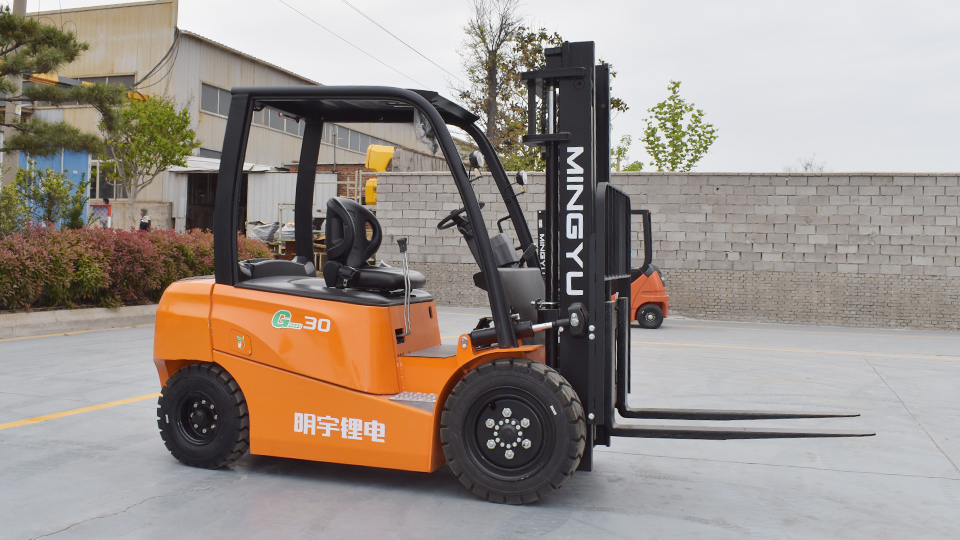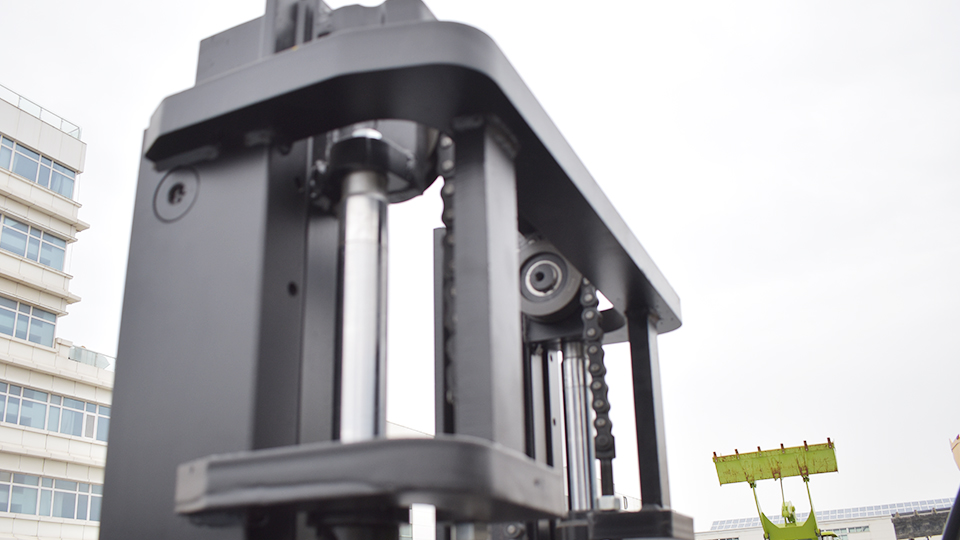
Why Choose an Electric Forklift? A Deep Dive into the Advantages
In the dynamic landscape of material handling, the decision of which forklift technology to adopt is a critical one, impacting operational efficiency, environmental footprint, and long-term costs. While internal combustion (IC) forklifts, particularly diesel and propane-powered models, have long been the industry standard, electric forklifts are rapidly gaining traction and for compelling reasons. This technical article delves into the multifaceted advantages of choosing an electric forklift, exploring their superior performance in specific applications, environmental benefits, lower operational costs, enhanced operator comfort and safety, and technological advancements that are solidifying their position as a leading material handling solution.
1. Zero Emissions and Enhanced Indoor Air Quality:
One of the most significant advantages of electric forklifts is their zero tailpipe emissions. Unlike IC forklifts that release harmful pollutants such as carbon monoxide, nitrogen oxides, and particulate matter, electric forklifts operate cleanly, powered by batteries. This makes them the ideal choice for indoor environments like warehouses, food processing facilities, and pharmaceutical plants where maintaining air quality is paramount for worker health, safety, and regulatory compliance.
The absence of exhaust fumes eliminates the need for costly and energy-intensive ventilation systems often required when operating IC forklifts indoors. This not only reduces energy consumption but also creates a healthier and more comfortable working environment for employees, potentially leading to increased productivity and reduced absenteeism. Furthermore, in industries with stringent hygiene standards, the lack of exhaust eliminates the risk of product contamination.
2. Significantly Lower Operating Costs:
While the initial purchase price of an electric forklift can sometimes be higher than a comparable IC model, the long-term operating costs are typically significantly lower. This stems from several key factors:
Lower Energy Costs: Electricity is generally considerably cheaper than diesel or propane on a per-unit-of-energy basis. The cost to charge an electric forklift battery is often a fraction of the cost to refuel an IC forklift for the same operating hours. This can translate to substantial savings over the forklift's lifespan.

Reduced Maintenance Costs: Electric forklifts have a simpler mechanical design with fewer moving parts compared to IC engines. This eliminates the need for regular oil changes, filter replacements (oil, air, fuel), spark plug replacements, and other engine-related maintenance tasks. Maintenance primarily focuses on the battery, electrical connections, hydraulics (for lifting), tires, and brakes, leading to lower costs for parts and labor. Studies have shown that the annual maintenance costs for an electric forklift can be as much as one-third of those for an IC forklift.
Less Downtime: The reduced complexity and fewer potential points of failure in electric forklifts often result in less downtime for maintenance and repairs, leading to increased operational efficiency and productivity.
3. Quieter Operation and Improved Workplace Safety:
Electric forklifts operate much more quietly than their IC counterparts. The absence of a combustion engine significantly reduces noise pollution in the workplace. This quieter operation offers several benefits:
Enhanced Communication: Reduced background noise makes it easier for workers to communicate, improving coordination and safety on the warehouse floor.
Reduced Noise Fatigue: Lower noise levels contribute to a more comfortable working environment, potentially reducing operator fatigue and improving focus.
Increased Safety Awareness: Quieter operation allows operators and pedestrians to be more aware of their surroundings, reducing the risk of accidents.
4. Smoother Acceleration and Enhanced Maneuverability:
Electric forklifts often provide smoother and more precise acceleration and deceleration compared to IC forklifts. This is due to the direct and responsive nature of electric motors. This enhanced control can lead to:

Improved Load Handling: Smoother movements reduce the risk of damaging fragile goods.
Increased Efficiency: Faster and more precise maneuvering can improve cycle times and overall productivity.
Enhanced Operator Comfort: Smooth operation reduces jolting and vibrations, leading to a more comfortable and less fatiguing experience for the operator.
Many electric forklifts, particularly three-wheel models, also offer excellent maneuverability in tight spaces due to their compact design and tighter turning radii. This is a significant advantage in congested warehouse environments.
5. Technological Advancements and Performance Capabilities:
Modern electric forklifts are equipped with advanced technologies that enhance their performance and efficiency:
Regenerative Braking: Many electric forklifts feature regenerative braking systems that capture energy during deceleration and braking, feeding it back into the battery. This extends battery life and reduces energy consumption.
AC Motors: Advanced AC (alternating current) motors offer improved energy efficiency, higher torque, and require less maintenance compared to traditional DC (direct current) motors.
Smart Battery Management Systems: Sophisticated battery management systems monitor battery charge levels, temperature, and overall health, optimizing performance and extending battery lifespan.
Customizable Performance Settings: Many electric forklifts allow for customizable performance settings to match specific application requirements and operator preferences, optimizing efficiency and control.
Lithium-ion Battery Technology: The increasing adoption of lithium-ion batteries in electric forklifts offers significant advantages over traditional lead-acid batteries, including longer lifespan, faster charging times, opportunity charging capabilities (charging during breaks), higher energy density, and minimal maintenance requirements. While the initial cost of lithium-ion batteries is higher, their long-term benefits often outweigh the investment.
6. Environmental Responsibility and Sustainability:
Choosing electric forklifts aligns with growing environmental awareness and sustainability initiatives. By eliminating tailpipe emissions, businesses can significantly reduce their carbon footprint and contribute to cleaner air quality, both within their facilities and in the surrounding community. This can also enhance a company's image and appeal to environmentally conscious customers and stakeholders.
7. Reduced Heat Generation:
Electric forklifts generate significantly less heat compared to IC engines. This can be a considerable advantage in temperature-sensitive environments, such as cold storage facilities or clean rooms, as it reduces the load on cooling systems and helps maintain the required temperature.
8. Potential for Government Incentives and Tax Benefits:
Depending on location and government regulations, businesses that invest in electric vehicles and equipment, including forklifts, may be eligible for various incentives, tax credits, or rebates. These financial benefits can further reduce the overall cost of ownership and make electric forklifts an even more attractive option.
Addressing Common Concerns:
While the advantages of electric forklifts are numerous, some common concerns often arise:
Initial Cost: As mentioned earlier, the initial purchase price can be higher. However, a thorough total cost of ownership analysis often reveals long-term savings.
Battery Charging Time: Traditional lead-acid batteries require several hours to charge. However, advancements in fast charging technology and the adoption of lithium-ion batteries with opportunity charging capabilities are mitigating this issue.
Battery Lifespan and Replacement Cost: While battery replacement is a cost to consider, the lifespan of modern batteries, especially lithium-ion, is increasing, and proper maintenance can maximize their longevity. The long-term energy and maintenance savings often offset the battery replacement cost.
Power and Performance in Heavy-Duty Applications: While early electric forklifts may have had limitations in very heavy-duty outdoor applications, modern high-capacity electric forklifts are now capable of handling demanding tasks, often matching or exceeding the performance of comparable IC models.
Conclusion:
The decision to choose an electric forklift offers a compelling array of advantages that extend beyond simply moving materials. Their zero emissions contribute to a healthier and safer working environment, particularly indoors. Significantly lower operating costs, driven by reduced energy and maintenance expenses, translate to long-term financial benefits. Quieter operation enhances communication and reduces noise fatigue. Advanced technologies provide smooth and efficient performance, while lithium-ion batteries offer increased productivity and reduced downtime. Furthermore, embracing electric forklifts aligns with growing environmental responsibility and can potentially unlock government incentives.
While the initial investment may require careful consideration, a comprehensive understanding of the total cost of ownership and the numerous operational and environmental benefits clearly positions electric forklifts as a smart, sustainable, and increasingly cost-effective choice for a wide range of material handling applications. As technology continues to evolve and battery costs decrease, the adoption of electric forklifts is poised to accelerate further, solidifying their role as a cornerstone of modern material handling operations.
Name: selena
Mobile:+86-13176910558
Tel:+86-0535-2090977
Whatsapp:8613181602336
Email:vip@mingyuforklift.com
Add:Xiaqiu Town, Laizhou, Yantai City, Shandong Province, China